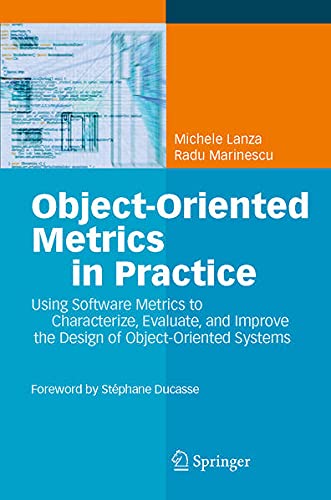The book takes a while to get going, but then chapter 3 gives some interesting ideas on how to visualise various software metrics. At this point, I almost started to get a bit inspired.
Unfortunately, from then on, it's all downhill. The rest of the chapters deteriorate into repetitive and tedious recipes on how to detect various code smells. The idea is interesting, but it doesn't make for interesting reading.

